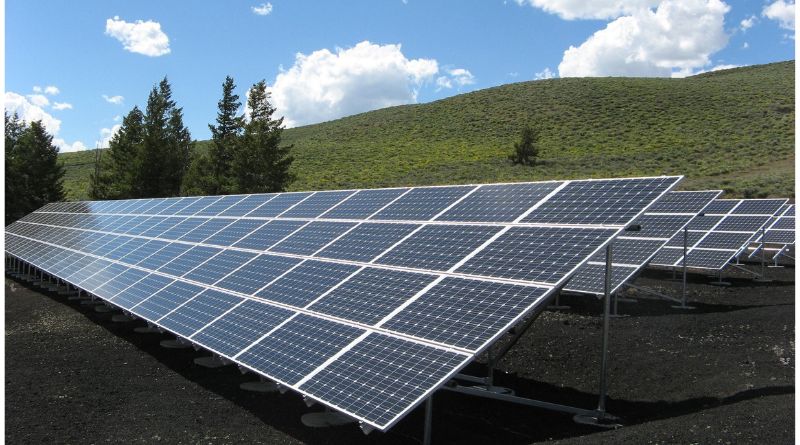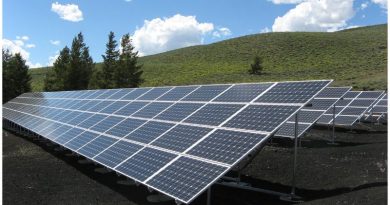Top Tips for Buying the Best Solar Panels
Here in this blog, we will be discussing the top tips for buying the best solar panels for your PV system. Installing a solar PV system needs a lot of research in many aspects, one of which is selecting the best solar panels. The term “Best Solar Panels” includes a lot of things that should be considered before buying solar panels. If you are planning to install a solar PV system for your domestic or commercial use you must consider the following tips.
Table of Contents:
- Power Consumption/Requirements
- Types of Solar Panels: (Mono, Poly, Bifacial, Mono Perc)
- Selecting Brand/Companies
- Warranty of the Solar Panels
- Temperature Coefficient of the Solar Panels
- Temperature Coefficient of the Solar Panels
- The cost of the Solar Panels
- The durability of the Solar Panels
- Number of Panels Required
- The efficiency of the Solar Panels
- Conclusion
Power Consumption/Requirements:
Before buying solar panels for your PV system, one must know the power requirements of the project. As soon as one analyzes the power requirements, it gets easy to select the best possible solar panels for the system. Solar panels are available in many sizes in terms of power production, i.e., 150W, 250W, 300W, 350W, 400W, and 550W, etc. The more the power consumption the big should be the size of the solar panels and vice versa. This will decrease the price/watt and will also help in saving the installation area of the project. The solar panels are rated in Watts. Each solar panel has specific voltage and current values that determine the wattage of the solar panel. These specific voltages and current values help in finding the total number of solar panels in series and parallel.Types of Solar Panels: (Mono, Poly, Bifacial, Mono Perc):
Selecting the best solar panels for PV projects also includes selecting the type of solar panel that fits best in one’s project. There are three major types of solar panels which are:-
- Amorphous
- Monocrystalline
- Polycrystalline
Selecting Brand/Companies:
In PV system installation, selecting the brand/company of the solar panels has great importance. Best brands/companies provide good quality generally. Although some companies also provide good quality at very affordable prices, still one should select the best brands/companies to get the best results. Branded solar panels provide high quality and durability, which perform very well over time. Top brands focus on the efficiency of solar panels that generate more power for the same amount of sunlight. Some of the top brands that are currently ruling the solar panel industry are:-
- Canadian Solar
-
- LG
-
- SunPower
-
- Trina Solar
-
- JinkoSolar
Warranty of the Solar Panels:
Different solar panel companies provide different warranties in terms of efficiency, performance, lifetime, and type of warranty.-
- Warranty in terms of efficiency refers to the percentage of the solar energy that it will convert into electricity per unit area.
-
- Warranty of performance ensures that the solar panel will produce a certain amount of energy in the claimed warranty period.
-
- Warranty lifetime refers to the time the solar panel will perform at its best. Typically the warranty lifetime of the best solar panels ranges from 10 to 25 years.
-
- Type of warranty refers to that exactly what is covered under the umbrella of the warranty such as the manufacturing defect or the defect caused by whatever reasons, i.e, rain, wind, snow, hail, temperature, etc.
Temperature Coefficient of the Solar Panels:
The temperature coefficient of solar panels should also be considered when buying solar panels. The temperature coefficient refers to how much the performance of the solar panels will decrease when temperature increases. The temperature coefficient has an inverse relation with the efficiency of the solar panels, i.e, the efficiency of the solar panel decreases for an increase in each degree Celsius rise in temperature. Different solar panels have different temperature coefficients. Solar panels with lower temperature coefficients will perform better in locations with high temperatures and vice versa. Therefore one must consider the temperature coefficient of the solar panels accordingly for an optimized result.Size/Roof Compatibility of the Solar Panels:
One important thing that should be kept in mind while buying solar panels is to select the solar panels that are compatible with the system you have. Compatibility of solar panels refers to different things such as power compatibility, area compatibility, efficiency compatibility, compatibility in terms of shading, and compatibility in terms of maximum system voltage.-
- Power compatibility means that the solar panels that you are selecting for the PV system must be of the desired output power. As solar panels come in different wattage ratings, it is highly recommended to use the solar panels that best fit the wattage of the solar PV system.
-
- Area compatibility means using the solar panels that best fit in terms of size in the available area for solar PV systems. Using the available area for an optimized output is the key to a successful PV system. Solar panels come in different sizes and different wattages. Keeping the available area and the wattage of the total system, select the size of the solar panels that best fit your system.
-
- Efficiency compatibility should also be kept in mind. Different solar panels have different efficiency. Higher efficiency solar panels may be more expensive but it generates more energy per sq. meter. It is highly recommended to always use solar panels of the same types but if it is not possible then try to use solar panels that have the same efficiencies.
-
- Compatibility in terms of the shading effect should also be kept in mind. As the shading of different areas, times, and seasons is different, therefore use the solar panels that result in the best output of the system.
-
- Compatibility in terms of maximum system voltage should also be kept in mind as different solar panels have different ratings of maximum system voltage. Neglecting this may cause the inverter to burn.
The cost of the Solar Panels:
The following factors should be kept in mind while selecting solar panels in terms of cost:-
- Price/Watt: The price/watt is the cost when the total price of a solar panel is divided by the number of watts of the solar panel. Always consider the budget of your project and decide the solar panels that have a good price/watt, but remember to not compromise the efficiency of the PV system in long-term power goals.
-
- Research all the top brands with the same class and same efficiency and go for the one with the least price/watt. This will save you money without compromising efficiency.
The durability of the Solar Panels:
The durability of solar panels is the ability to exist for a long time without significant deterioration or degradation in quality and efficiency. Different solar panels are different in terms of durability. Most of the top-rated companies come with a warranty of almost 20 to 25 years of durability. The durability of solar panels is important because solar panels are considered the heart of a PV system. The solar panels should be durable because it is supposed to withstand different conditions in terms of temperature change, winds, snow hails, etc. High-quality and top-branded companies have the best durability of solar panels. However, this will not be enough for the best results because maintenance and cleanliness of the solar panels on time are as much important as considering the best solar panels.Number of Panels Required:
background knowledge of the designing of the solar PV system. It is important to know the exact number of solar panels that are required for the PV system because it helps in the selection of solar panels for the project. To find the number of solar panels that are required for the PV system, one should find the number of solar panels in parallel, the number of solar panels in series, and the total number of strings of PV panels that can fulfill the requirement of the solar PV system. The detailed calculation will be shared in the next blog posts but a rule of thumb for finding the number of solar panels in series and parallel in a PV system is:-
- The number of solar panels in series = System Voltage / Vmp of the solar panel.
-
- The number of solar panels in parallel = System Current / Imp of the solar panel.
The efficiency of the Solar Panels:
Efficiency is one of the most important considerations in buying solar panels. The term efficiency of a solar panel refers to the percentage of sunlight that it converts into usable energy in the form of electricity. The advantages of solar panels of high efficiency are:-
- They can generate more energy per sq.meter of an area. Which in terms means you will require fewer solar panels to generate the same amount of energy and will take up less space.
-
- Selecting solar panels with greater efficiency will reduce the overall cost of the solar PV system.
-
- Solar panels with high efficiency can perform best in hard conditions, i.e., high temperatures, low light, shading, clouds, etc.



interesting post
thanks, interesting read